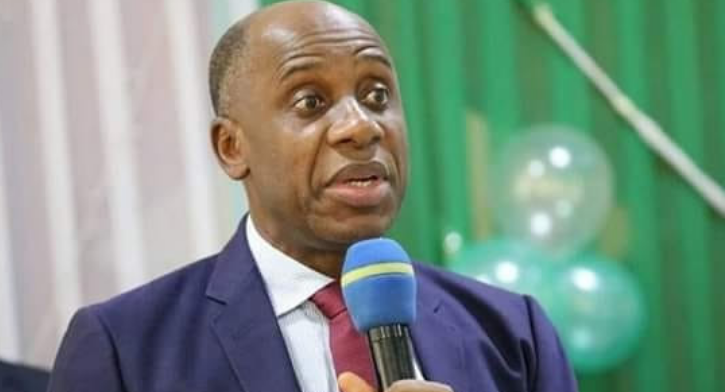Why We Take Loans From China – Amaechi

The Minister of Transportation, Mr. Rotimi Amaechi, on Friday, said Nigeria had to resort to approaching China for loans due to the low interest rate, the payback period and moratorium. He said when compared to the terms of loans given by Western countries, it was clear the Chinese loans were better.
The minister, who spoke in an interview on AIT, noted that if Nigeria stopped taking loans, it would also mean an end to the infrastructural projects embarked upon by the Federal Government.
He stated,
People are asking if Nigeria has the capacity to pay back the loans. We will pay back. A loan given for 20 years at 2.8 per cent; which (other) country will give you that? I mentioned that these loans are paid directly to the contractors, once we sign that the job has been done. What is critical is that the projects are in place.
Compared to the loans we got from the Western countries, this is at 2.8 per cent, for 20 years with seven years moratorium. Why won’t we pay back?
He argued that if the previous governments had done the infrastructural projects, there would be no need taking such loans at such a time, adding,
I just thought that the National Assembly and Nigerians should at least acknowledge the fact that we are making progress in terms of infrastructural development.
When we stop collecting the loans, then we will stop developing because there is no money. Before we came, the money had been blown away. There were no funds.
The minister also faulted insinuations that Nigeria signed away its sovereignty with the sovereignty clause in the loan agreements, noting that the clause was only to guarantee the repayment of the loan and not for the country to lose its sovereignty.
The House of Representatives Committee on Treaties, Protocols and Agreements on Tuesday, raised the alarm over loan agreements being entered into by the Federal Government with China, expressing its resolve to review loan facilities Nigeria already took from China and others.
But Amaechi said,
No country will sign away its sovereignty. The clause says ‘I expect you to pay according to the terms that we agreed on, but if you don’t pay, when I come to collect the assets you used as guarantee, don’t wave your immunity at me and say you can’t touch our assets because we are a sovereign country.
What you do is to give a sovereign guarantee, which is the clause generating reactions. And I’m ashamed by those interpreting it the other way.
It’s a standard clause in every such agreement, whether it is the United States or the United Kingdom that we are signing it with, because they want to know if they can recover their money.
What the clause does is to say ‘I expect you to pay according to those terms that we have agreed on, if you don’t pay, when I come to collect the assets you used as guarantee, don’t wave your immunity at me and say you can’t touch our assets because we are a sovereign country.
When asked about the assets being pledged as collateral for the loans being collected, the minister said,
The same assets the funds are being used to finance,
adding however that the loans were already being paid back.

Justin Nwosu is the founder and publisher of Flavision. His core interest is in writing unbiased news about Nigeria in particular and Africa in general. He’s a strong adherent of investigative journalism, with a bent on exposing corruption, abuse of power and societal ills.













